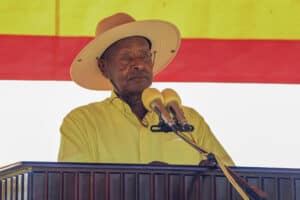If the DA succeeds in persuading opposition voters they should not support the other parties, those parties may die.

Do opposition voters know how this country’s system of choosing representatives works? If they do, they will ignore the latest attempt by the Democratic Alliance (DA) to misinform them.
For not the first time, the DA is telling opposition voters that if they vote for other parties, they will split the vote and allow the ANC to govern.
This time, its pitch targets Gauteng voters because the contest is expected to be close. It has circulated an SMS to voters claiming that if you vote for an opposition party other than the DA, this will allow the ANC to win the province. The message is almost entirely false.
Splitting the vote is a problem in democracies with constituency systems. This was the method used in all-white elections here and later for coloured and Indian voters who took part in tricameral parliament elections under apartheid.
Since the candidate with the most votes wins, even if they don’t get a majority, opposition voters can allow the governing party to win seats by spreading their loyalties among parties.
If there are two opposition parties contesting a seat, the governing party may win 40% and the two other parties 30% each. Although six out of 10 voters rejected the governing party, it still wins because the opposition vote was split.
In the National Assembly, there are 400 seats, so any party that wins one quarter of one percent gets a seat. In Gauteng, there are 73; any party that wins 1.4% wins a seat.
If you vote for a party other than the ANC which wins 0.25% or more nationally, or 1.4% or more in Gauteng, you are electing an opposition member.
This does not benefit the ANC. It is true that, if you vote for a party that gets less than this, you are not electing a member and so the ANC might benefit. But it does not mean you need to vote for the DA – you could vote for any opposition party that is likely to win seats.
So, if you aim to deny the ANC a majority, there may be an argument for voting for an opposition party which you expect to win seats – even if it is not your first choice – so that your vote is not “wasted”. There is no argument for voting for the DA if all you want to do is deny seats to the ANC.
In recent elections, the DA has got away with misleading supporters of smaller parties into voting for it so they do not “split the vote” – there has been a swing from these parties to the DA. This may be because opposition voters in the racial minorities are still thinking of the pre-1994 system.
If the DA succeeded in persuading opposition voters that they should not support the other parties, those parties would die. New voters and staunch supporters of those parties might decide that no one on the ballot represents them and stay at home. This would reduce the opposition vote.
Misleading voters about the way the system works may help the DA, but it does not help anyone who wants a strong opposition which can represent the full range of views in this country.
Steven Friedman is research professor at the politics department, University of Johannesburg
For more news your way, download The Citizen’s app for iOS and Android.






